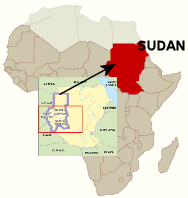A few months ago, a young Airman from New Jersey, Carl Ware Jr. was shot and killed in Iraq. Around the time of his funeral
questions began to emerge about the exact nature of his death. A week ago, I was enjoying a rainy day off at home, drinking some Earl Grey and surfing the net. Out of the blue I get an instant message from "Justdunno." It was an unfamiliar screenname.
"You wrote about my brother."
Long, awkward, pregnant pause.
"Carl Ware."
Keep in mind, I recognized the name of course, but it had been a while since Airman Ware's death, so it wasn't exactly fresh in my mind what I wrote about him.
"I hope I didn't write anything that offended you," I typed.
"Not at all," she replied. She seemed grateful that we seemed willing to ask the tough questions, so she reached out.
I have one of those screennames that you can derive from my email address which you can find on this site. I'm not too hard to track down. But I was curious why did she reach out to me. Did she need a friend or was she just trying to keep her big brother's story alive?
"Both," she said.

(pic of carl and his kid sister, as youngins. I am not using her name because she doesn't wanna be google-able)
Little sister told me -- as per the jag lawyer prosecuting this case -- that Carl died in Iraq because he was shot in the chest by a fellow American soldier, a guy who is now being detained in Kuwait awaiting trial. She pointed out that her brother's (alleged) killer had some mental issues and was admitted to the service at a time when recruiters were bending their standards and accepting just about anyone with a pulse. Anyway, the trial is coming in the spring, probably in March.
We chatted for about an hour that first time. We could have gone on longer, but she is reeeally pregnant and needed to get some rest. She lamented that Carl would never know his niece or nephew. And if that weren't sad enough, Carl's wife is also pregnant with their second child.
Anyway, in case you're wondering why I am sharing all this it's to remind each and every one of you that there is an expensive and increasingly deadly war raging in Iraq. To say nothing of Afghanistan, the mess in Iraq is really out of countrol. I know we all know the Iraq war is happening. Of course we are sensitive to the war. We are progressives after all.
But when I hear stories like Carl Ware's and I think to myself "for every Carl Ware there are like thousands of cases just like his or worse." And the thought sickens me. And that's when I have a gut check and ask myself what am I doing to fight for peace.
Carl's sister asks me "why did my brother have to die?"
If Carl Ware's story can inspire us to work to end this war, then in some small way we could say that he died for peace.
We've tackled a lot of weighty issues here in the liberal blogosphere. Can we now brainstorm a little about ending this war?
 With an eye on 2007, many of us are have 'resolutions' on our minds. I know what I will be committed to in 'o7: taking our new progressive mandate to the streets. Afterall, the Democrats won on election day so the days of George Bush having free reign are over.
With an eye on 2007, many of us are have 'resolutions' on our minds. I know what I will be committed to in 'o7: taking our new progressive mandate to the streets. Afterall, the Democrats won on election day so the days of George Bush having free reign are over.








